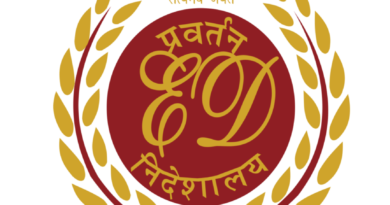Retired IPS & IFS Officers Move Apex Court Challenging Recently Granted Remission To 11 Convicts of Bilkis Bano Case
(Judicial Quest News Network)
A PIL has been filed before Apex Court challenging the recently granted remission to the 11 convicts of Bilkis Bano case by former woman police officer, a former woman Indian Foreign Service Officer, and renowned academic with expertise on issues of public policy and governance.
A bench of Justices Ajay Rastogi and BV Nagarathna tagged the petition along with the earlier petitions regarding the issue.
The petition has been filed by Dr.Meeran Chadha Borwankar, (former IPS officer), Madhu Badhuri (former IFS officer), and activist Jagdeep Chokkar.
The petitioners seeks setting aside of a remission order directing en masse premature release from Godhra sub-jail of all 11 convicts who had been found guilty of the gang-rape of Bilkis Bano and two others, and also convicted for murdering seven persons of her family including a 3 days’ old infant and a 3 and a half year old girl child, during the targeted communal violence in the State of Gujarat in2002.
The present Petition also calls upon the need for transparency in the process of grant of remission or premature release, especially when the concerned individuals are convicts in hate crimes that caused not only irreparable personal harm and injury to the victim-survivor, but also ruptured the chord of social harmony and left a deep gashing wound on society in rem.
Advocate Vrindra Grover appeared for the petitioners.
The petitioners contend that need for transparency in the process of grant of remission or pre-mature release, especially when the concerned individuals are convicts in hate crime.
The order for the early release of Respondents raises serious questions of legality and propriety, especially in view of the heinous and gruesome crime of targeted gang-rape and murder of Muslims, including the barbaric killing of a 3 day old infant and a 3 and a half year old girl child.
Further it is submitted that the order of the court is wholly without jurisdiction, lacks authority of law and has been passed in flagrant violation of the mandate of section 432 (2) Cr.P.C
The pleas states that the gruesome and communally driven hate crimes committed by the Respondents No. 3 to 13 was held by the High Court of Bombay to be “uncommon” as “a large number of persons from the Muslim community were murdered”.
The Hon’ble High Court records that these persons “in a mob on account of the Godhra incident were moving in search of Muslims” and that “they were boiling with revenge”.
It can thus be safely said that the crime committed by the Respondents No. 3 to 13 is not an individual crime, and undeniably affects society at large and has direct implications for the social fabric, co-existence, as well as peace and unity of the people. Measured against the Laxman Naskar factors, the crime committed by the 21 Respondents No. 3 to 13 would fail the test and not be fit for grant of remission.
The petitioners have also drawn attention to the news reports which provide that families of Muslims from the victim-survivor’s village have stated leaving the village in fear after the convicts were released.
Further the petitioners submitted that the present case having been investigated by the CBI, requires the concurrence of the Union of India for grant of remission, in terms of Section 435(1) (a) Cr.P.C., however no record of any such concurrence is publicly available. Even otherwise, assuming that the mandate of Section 435(1) Cr.P.C. has been complied with, the decision of the Respondent No. 2 is also amenable to judicial review where it is arbitrary and has not followed the mandate of the law as laid down in Laxman Naskar.
The petitioners also brought into the notice of the court that the judgment in Ram Chander makes it abundantly clear that it is not open to the state government to ignore or deviate from the opinion of the presiding Judge.
In the event that the state government finds that the opinion of the presiding Judge has not considered relevant material or that it has not considered the factors laid down in Laxman Naskar, then the state government can ask the presiding Judge to reconsider his opinion after considering all relevant factors.
However, the state government cannot choose to simply ignore the opinion of the presiding Judge, as has been done in the present case, according to information available through media reports. This defeats and subverts the mandate and objects of Sec. 432(2) 24 Cr.P.C. and renders the order of remission illegal and untenable in the eyes of law.
The petition has been filed through Advocate Aakaesh Kamra and has been drafted by Soutik Banarjee, mannath Tipnis and Devika Tulsiani.



